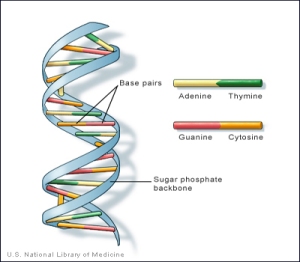The government should bring forward new legislation on genomic medicine, the House of Lords Science and Technology Committee has said.
The committee have published a report on Genomic Medicine which argues that recent developments in genomic science stemming from the sequencing of the human genome represent a unique opportunity for real advances in medical care.
They said the Government should produce a White Paper on genomic medicine and the NHS must take a range of steps to ensure that these advances are realised.
The last White Paper on the issue was published in 2003 and dealt mainly with the diagnosis and management of rare single-gene disorders.
The potential impact of “genomic medicine” has moved on significantly since then and now has implications for patient care across the NHS and a range of common, genetically complex diseases such as diabetes, heart disease and cancer.
Lord Patel, who chaired the Inquiry, said:
“Genomic medicine will clearly have a huge impact on health provision and the NHS in particular over the next few years. It is an ever developing technology that presents both challenges and exciting opportunities for health care.
“The Government must now take the lead on this issue and produce a new White Paper on genomic medicine. It has been six years since the last one and in this area times move on very quickly.
“It is time for a comprehensive statement from the Government on how genomic medicine will be incorporated into the NHS, including details of the extra training doctors and nurses will need in this area.
“We have concerns about the growth of ‘at home’ Direct to Consumer Tests.
“Without proper qualified interpretation results of genetic and genomic tests could cause people to worry unnecessarily and place new demands on NHS services.
“It is time firms offering these tests were required to provide counselling and guidance on interpreting the raw results they provide.”
A range of genetic tests are already being used within the NHS to improve the diagnosis and treatment of a range of common illnesses, the committee said.
However there are several barriers to the translation of new tests from invention through to use within the NHS.
To alleviate these problems, the Committee recommends that the National Institute for Health Research ring-fence funding through a Health Technology Assessment programme to fund research into the use of genomic tests within the NHS, and that the Office for Strategic Coordination of Health Research should be tasked with outlining a strategic vision to overcome the translational barriers identified.
The report also recommends that the Government push for the re-classification of genetic tests within European law from ‘low’ to ‘medium’ risk to ensure that all tests are subject to pre-market review to prove their effectiveness before they are available for use either by the NHS or directly by consumers.
The Committee looks specifically at the growing market for Direct to Consumer Tests (DCTs) and raises concerns about the effect of consumers receiving DCT results via the internet without proper medical advice to put those results in context.
They also point out that because most companies that offer DCTs are based abroad the Advertising Standards Agency has no power to police bogus claims made by DCT providers for their products.
To counter these problems the Committee supports the Human Genetics Commissions work to develop a voluntary code of practice for DCT providers.
The code of practice should require firms to publish details of the effectiveness of the tests they offer. It should also include guidelines for the provision of appropriate pre- and post test counselling to help consumers interpret the results of DCTs.
The Committee found significant inequalities in the provision of genetic services across the NHS, for investigation and management of both rare and common diseases, due to the lack of a national policy on commissioning of genetics services.
Significant changes to the operational systems within the NHS are vital to ensure that an equitable and cost effective service is provided across the country including the need to consolidate laboratory services.
The report recognises that there are privacy concerns about the retention and use of genetic data as well as apprehension about how the data may be used by, for example the insurance industry.
To alleviate privacy concerns the Committee recommends that the Information Commissioner should publish a set of clear guidelines for researchers handling genetic data.
The Committee suggests the Government should work with the Association of British Insurers to draw up a new agreement on the use of genetic tests results for insurance purposes beyond the current moratorium which runs out in 2014.

0 comments:
Post a Comment